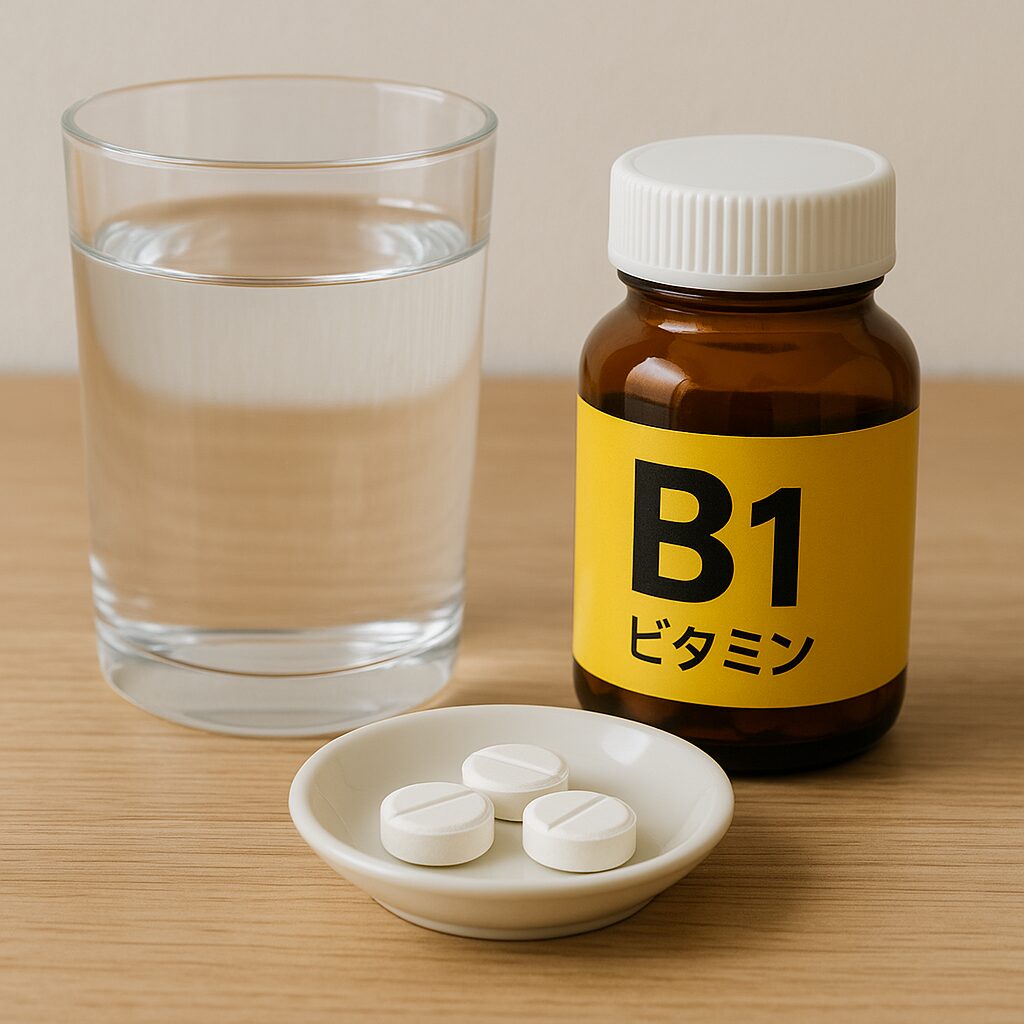Have you ever considered taking vitamin supplements to fight fatigue or improve concentration? Many people immediately think of vitamin C or multivitamins, but vitamin B1—also known as thiamine—often goes unnoticed. While it plays an essential role in energy metabolism and nerve health, taking it as a supplement is not always simple. There are important precautions to keep in mind, especially if you are already consuming alcohol regularly, taking medications, or managing certain health conditions. In this article, we will explore the key considerations before starting vitamin B1 supplementation and why a balanced approach is necessary.

1. Understanding the Role of Vitamin B1
Vitamin B1 is a water-soluble vitamin that helps convert carbohydrates into energy. It also supports nerve function, muscle contraction, and overall mental clarity. Deficiency can lead to fatigue, irritability, or even a serious condition called beriberi. While most people can get enough through whole foods such as pork, legumes, whole grains, and nuts, supplementation is sometimes considered when diet alone is insufficient. However, “more” is not always “better,” and overuse without guidance may not be beneficial.
2. Dosage and Balance
One of the most common mistakes is assuming that high doses of vitamin B1 will bring faster results. Since it is water-soluble, excess amounts are usually excreted in urine, but taking unnecessarily high doses can still cause side effects such as stomach discomfort or imbalance with other B vitamins. Most experts recommend meeting needs through food first and only considering supplements if there is a confirmed deficiency or specific medical advice.
3. Interactions with Alcohol
Alcohol consumption significantly interferes with vitamin B1 absorption. People who drink frequently may experience faster depletion of thiamine, increasing the risk of deficiency. In such cases, supplementation may help, but it should not be seen as a way to “cancel out” the effects of alcohol. Long-term alcohol use can also impair liver function, which complicates how the body processes nutrients. Consulting a healthcare provider before taking vitamin B1 is especially important for heavy drinkers.
4. Medication Interactions
Certain medications can alter how vitamin B1 works in the body. For example, diuretics may increase its excretion, while chemotherapy drugs can reduce its effectiveness. Antibiotics and some heart medications may also interfere with thiamine absorption. Taking vitamin B1 alongside these treatments without guidance may reduce effectiveness or cause unintended issues. Always inform your doctor or pharmacist if you are considering adding a supplement to your daily routine.
5. Special Considerations for Health Conditions
People with specific health conditions should be extra cautious. For instance, individuals with kidney problems who undergo dialysis may lose more thiamine than usual. Patients with chronic illnesses such as diabetes or liver disease may also have different nutrient needs. In such cases, professional monitoring and adjusted dosages are necessary. Pregnant and breastfeeding women should also follow recommended guidelines carefully rather than self-prescribing supplements.
6. Food First Approach
Nutritionists often emphasize a “food first” philosophy. Foods like pork, sunflower seeds, peas, lentils, brown rice, and fortified cereals naturally provide thiamine in safe amounts, along with other synergistic nutrients. Supplements should be considered a supportive tool, not a replacement for healthy eating. For most people, a varied diet can prevent deficiency without the need for pills.
7. When Supplements May Be Necessary
Supplements may be useful in cases of diagnosed deficiency, during recovery from illness, or in situations where dietary intake is inadequate. For example, people with chronic alcohol use disorder, elderly individuals with poor appetite, or those following highly restrictive diets may benefit from supervised supplementation. However, dosage should always be determined by a qualified healthcare provider.
🙂
Vitamin B1 supplements can be helpful, but they are not risk-free. Paying attention to dosage, lifestyle habits, medication use, and overall diet is crucial before starting. Instead of rushing into supplements, think of them as part of a broader strategy for health—where balanced meals, moderate habits, and professional guidance work together. By doing so, you can protect both your energy levels and long-term well-being more effectively.
Sources
– National Institutes of Health (NIH): Vitamin B1 Fact Sheet
– World Health Organization (WHO): Micronutrients and Human Health
– Academy of Nutrition and Dietetics: Thiamine Guidelines
Disclaimer
This article is for informational purposes only and should not replace professional medical advice. Individual needs may vary, and anyone considering supplementation should consult a qualified healthcare provider before making changes to their routine.